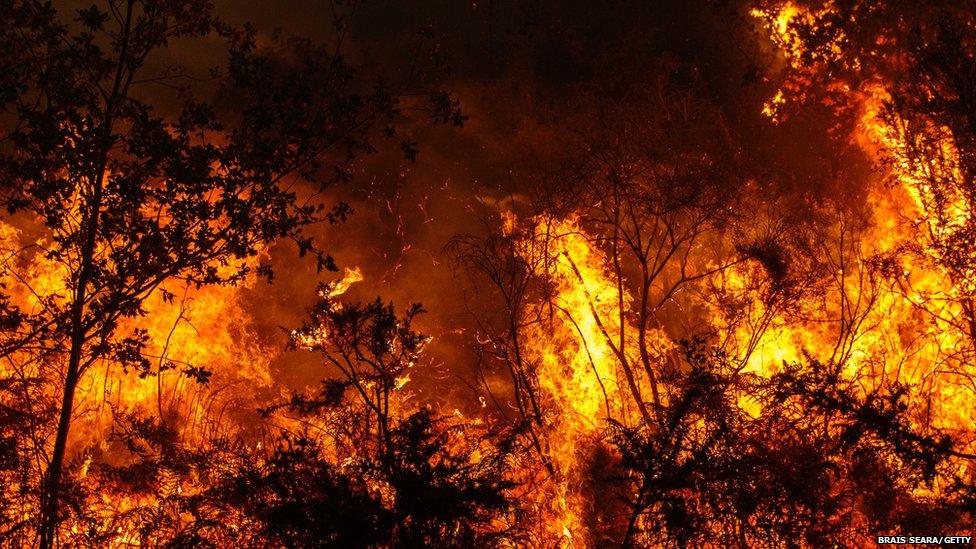Climate change: Scientists warn of increase in wildfires around the globe
- Published
- comments

Wildfires could even be seen in places like the Arctic
The United Nations Environment Programme (UNEP) has released a report predicting an increase in wildfires across the globe.
More than 50 experts put the report together. They predicted a 14% increase in wildfires by 2030 and a 30% increase by 2050.
They found that some of the biggest increases will be in areas that don't usually see many wildfires, like central Europe and even the Arctic.
The Arctic doesn't see very many wildfires currently, but UNEP's report says that's going to change in the future
Antarctica will be the only continent that won't have any wildfires at all by the end of the century.
And they said that all of this is being driven by climate change, as planet Earth warms up.
Although fires in dry landscapes are a natural process and, in some instances, are actually needed to keep the environment healthy, this report focuses on large, unusual fires that cause lots of damage to the areas where they occur, and the people that live there.
The report said: "From Australia to Canada, the United States to China, across Europe and the Amazon, wildfires are wreaking havoc on the environment, wildlife, human health and infrastructure."
A wildfire is an uncontrolled fire that burns usually in places like forests or on dry grasslands
They can be started by people, for example by dropping a match, or naturally, such as by a strike of lightning
If an area is particularly windy, it can make them grow bigger
But it continues that while the situation "is certainly extreme, it is not yet hopeless".
Dr Douglas Kelley works at the UK Centre for Ecology & Hydrology and helped with the report.
He explained that not only can wildfires be dangerous when they happen, they can actually increase global warming and create further fires over time.
California in the USA has been hit with lots of wildfires recently as a result of a long drought
"Wildfires can significantly affect the global carbon cycle. Fires in ecosystems that store large amounts of carbon result in the release of vast quantities of CO2 into the atmosphere. This exacerbates global warming, which in turn increases the risk of wildfires."
He said there are things we can do: "Reducing global greenhouse gas emissions will avoid some of the biggest increases in wildfires in forests, peatlands and permafrosts, which will help limit warming and fires, as well as the impacts of people and wildlife," he said.
However, the UNEP says that countries need to be prepared. Their recommendations in the report include investing more money into preventing them from happening in the first place, cooperating more internationally, and improving fire monitoring and prediction.
- Published2 January 2020
- Published18 April
- Published14 March 2019
